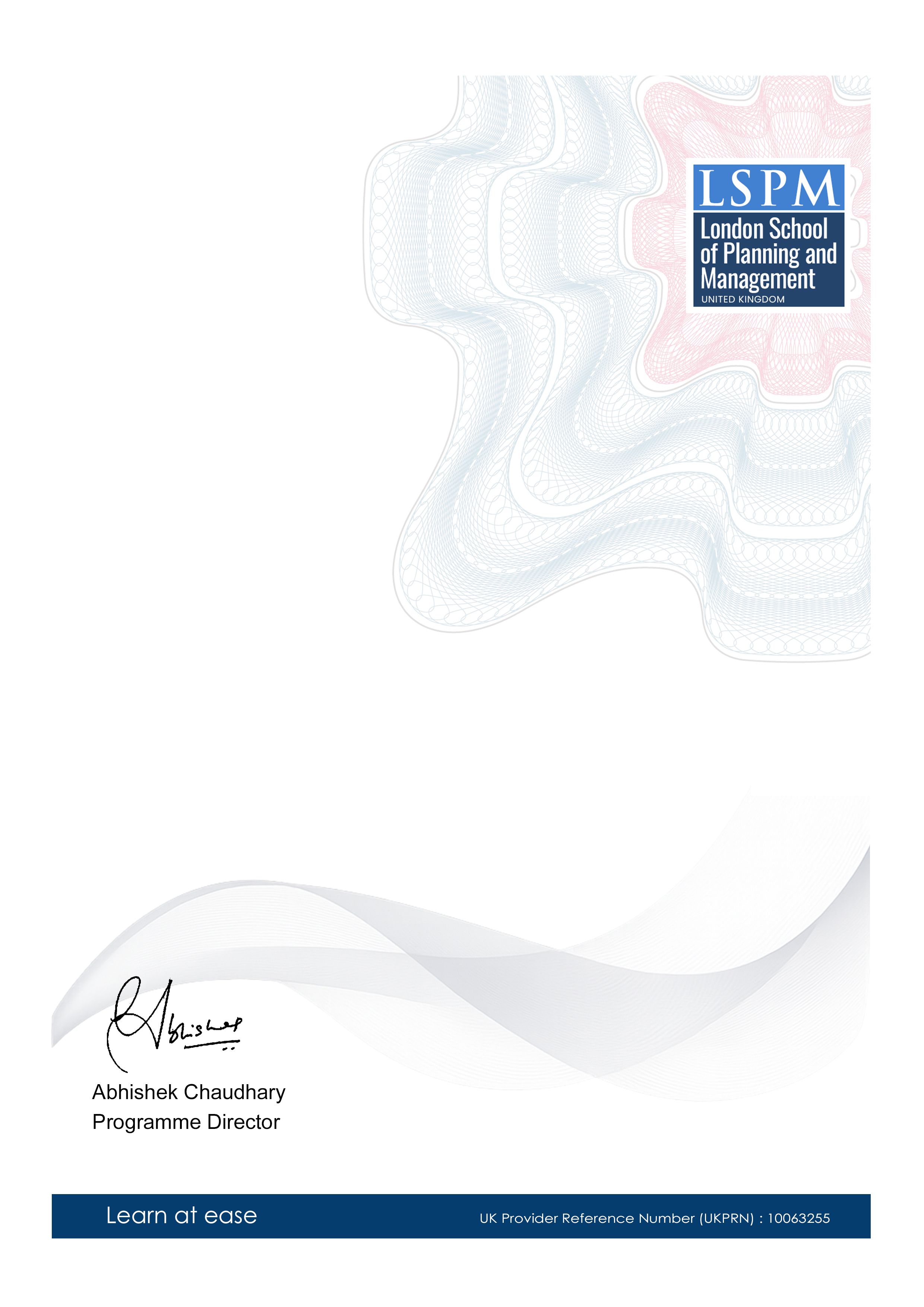Postgraduate Certificate in AI for Fraud Risk Evaluation
-- viewing nowArtificial Intelligence plays a vital role in Fraud Risk Evaluation by identifying patterns and anomalies in data. Our Postgraduate Certificate in AI for Fraud Risk Evaluation is designed for professionals who want to stay ahead in the field of financial crime prevention.
4,721+
Students enrolled
GBP £ 149
GBP £ 215
Save 44% with our special offer
About this course
100% online
Learn from anywhere
Shareable certificate
Add to your LinkedIn profile
2 months to complete
at 2-3 hours a week
Start anytime
No waiting period
Course details
Here are the essential units for a Postgraduate Certificate in AI for Fraud Risk Evaluation:
• Introduction to Artificial Intelligence (AI): An overview of AI, its history, and its applications. This unit will cover the basics of AI, including machine learning, deep learning, and natural language processing. It will also introduce the ethical considerations of using AI in fraud detection.
• Machine Learning for Fraud Detection: This unit will focus on the use of machine learning algorithms in fraud detection. Students will learn about supervised and unsupervised learning techniques, data mining, and predictive analytics. They will also explore the challenges of using machine learning in fraud detection, including data quality, bias, and interpretability.
• Deep Learning for Fraud Detection: This unit will cover the use of deep learning models in fraud detection. Students will learn about neural networks, convolutional neural networks, and recurrent neural networks. They will also explore the challenges of using deep learning in fraud detection, including data preparation, model interpretability, and computational resources.
• Natural Language Processing for Fraud Detection: This unit will focus on the use of natural language processing (NLP) techniques in fraud detection. Students will learn about text preprocessing, topic modeling, and sentiment analysis. They will also explore the challenges of using NLP in fraud detection, including data quality, language variations, and cultural differences.
• Ethics and Regulations in AI for Fraud Risk Evaluation: This unit will cover the ethical and regulatory considerations of using AI in fraud risk evaluation. Students will learn about data privacy, transparency, and accountability. They will also explore the legal and regulatory frameworks governing the use of AI in fraud detection, including the General Data Protection Regulation (GDPR) and the Bank Secrecy Act (BSA).
Career path
Entry requirements
- Basic understanding of the subject matter
- Proficiency in English language
- Computer and internet access
- Basic computer skills
- Dedication to complete the course
No prior formal qualifications required. Course designed for accessibility.
Course status
This course provides practical knowledge and skills for professional development. It is:
- Not accredited by a recognized body
- Not regulated by an authorized institution
- Complementary to formal qualifications
You'll receive a certificate of completion upon successfully finishing the course.
Why people choose us for their career
Loading reviews...
Frequently Asked Questions
Course fee
- 3-4 hours per week
- Early certificate delivery
- Open enrollment - start anytime
- 2-3 hours per week
- Regular certificate delivery
- Open enrollment - start anytime
- Full course access
- Digital certificate
- Course materials
Get course information
Earn a career certificate

